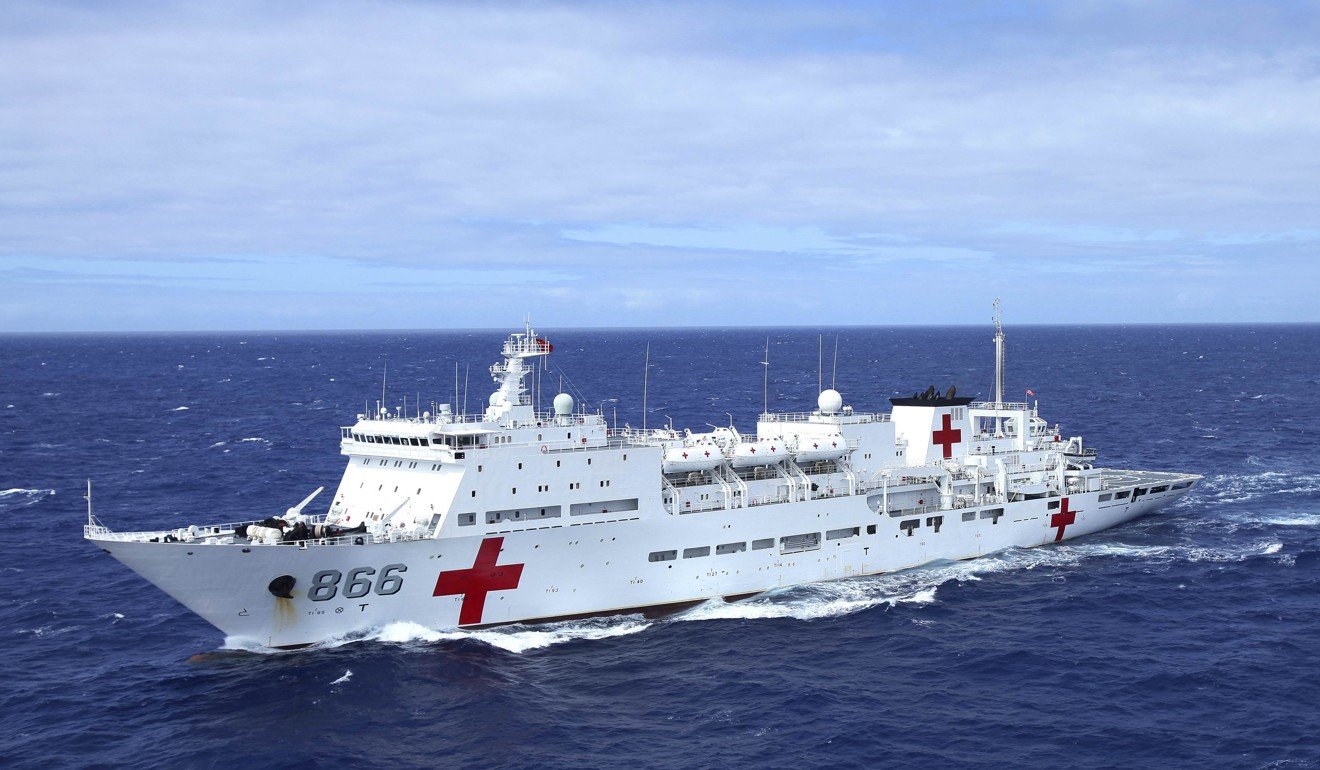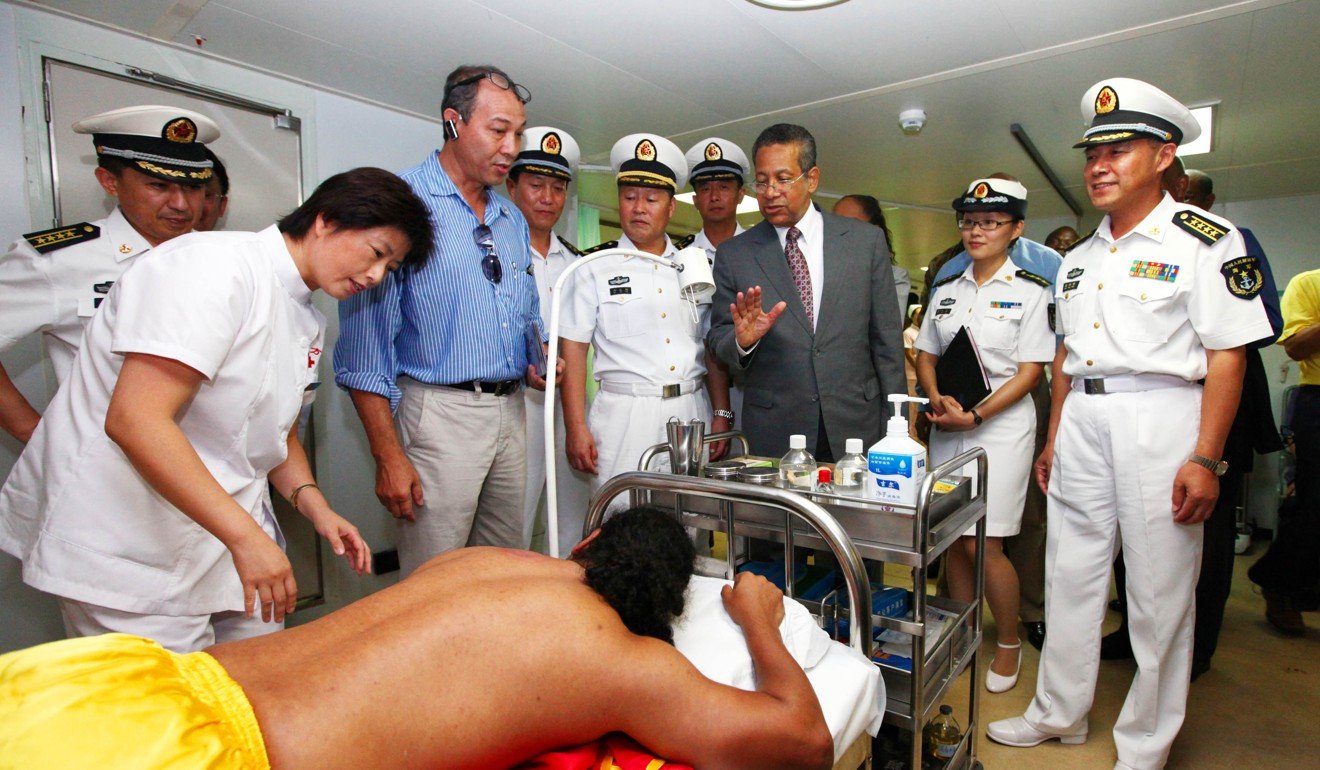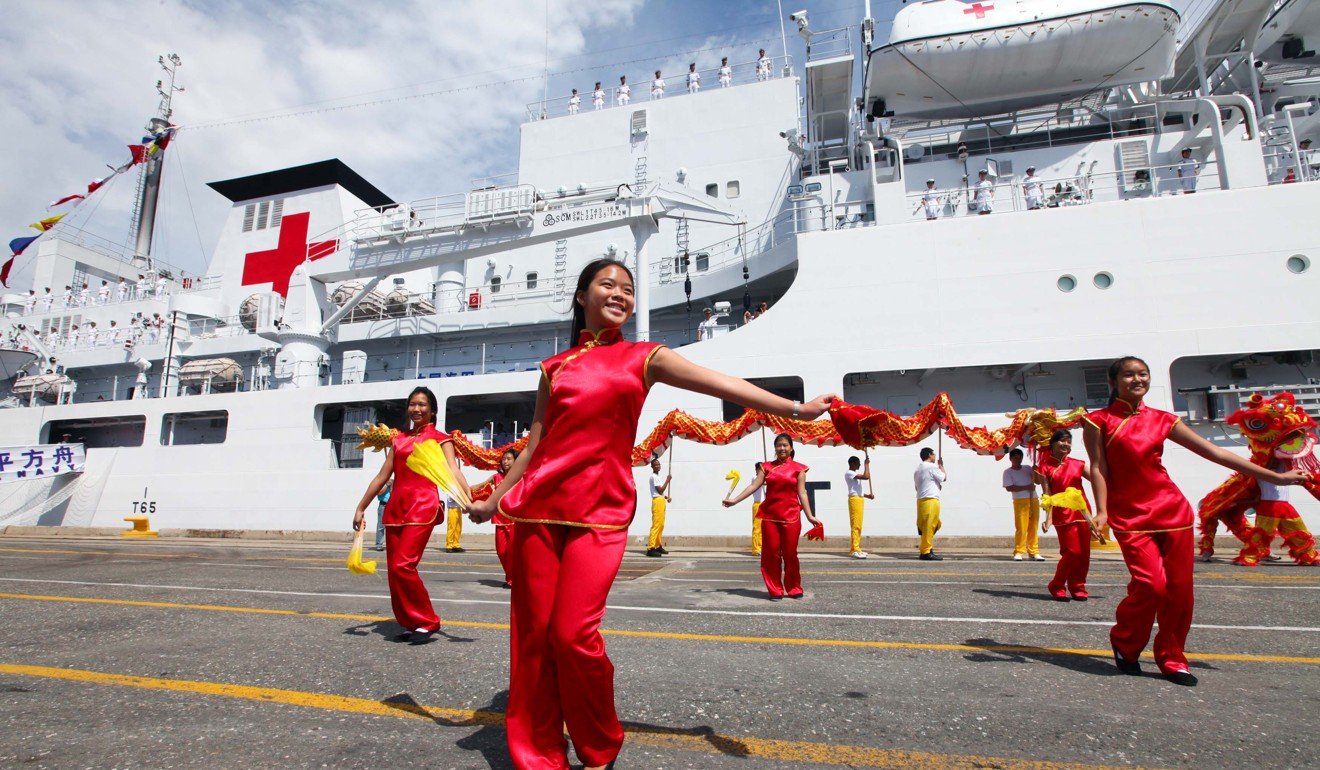scmp.com
The presence of the PLA Navy’s Peace Ark hospital ship in Djibouti is part of an investment in soft power
In a few days, the PLA Navy’s hospital ship Peace Ark will arrive in Djibouti as part of a ritual charm offensive of the Chinese military. This will be the PLA’s sixth “harmonious mission”, an operation during which a ship initially built to treat wounded soldiers in wartime provides free medical services to citizens in developing countries.
Since the first harmonious mission in 2010, the activity has been the flagship of the Chinese navy’s public diplomacy. It projects an image of benign power dedicated to human security, peace and development. Djibouti was a stop on the first mission, during which it provided medical services to the navy’s anti-piracy personnel deployed in the Gulf of Aden and 1,500 people free of charge.
This year, after Sri Lanka and Djibouti, two important stops along China’s 21st Century Maritime Silk Road, the Peace Ark will visit Sierra Leone, Mozambique and Tanzania during a soft-power journey through eight countries and lasting more than 150 days.

But it is only in Djibouti that the Peace Ark will receive attention beyond the local media. On August 1, on the 90th anniversary of the PLA’s founding, the Chinese military inaugurated its first overseas base. It is highly possible that the Peace Ark will not berth at the military facility, as the docks have yet to be built. And that makes more sense, given the mission’s purpose is for the ship to be easily accessed by the local population at a civilian port. Nevertheless, sending the Peace Ark less than a month after the inauguration sends the unmistakable signal that the PLA Navy’s presence in Djibouti is about making positive contributions to the world.
Indeed, having the Peace Ark in Djibouti underlines the official point that the base is being built to perform three tasks: support the Chinese navy’s anti-piracy patrols in the Gulf of Aden with logistics and maintenance, provide humanitarian assistance and disaster relief to neighbouring countries, and facilitate peacekeeping deployments in Africa, where China has more than 2,500 troops in UN operations.
China’s communication about Djibouti systematically seeks to downplay the strategic significance of what is a major break in the country’s military posture. The PLA refuses to describe the facility as a naval base. It has long insisted on the term “logistical support facility”. It is only at the inauguration ceremony that a new official term appeared – “support base”. This suggests an acknowledgement that functions other than logistics are part of the toolbox.

The Peace Ark’s Djibouti mission shows that the PLA wants to be taken seriously as a credible actor in humanitarian missions. This is an opportunity that should be seized by other powers with a presence in Djibouti. Given that the PLA is the newcomer under scrutiny, a Chinese multilateral humanitarian assistance initiative would be welcome but the record shows that the PLA has a very strong preference for bilateral settings.
China’s naval diplomacy will continue to be an important element of the country’s effort to give substance to the new Maritime Silk Road.
But as public diplomacy and concrete contributions increase the credibility and the reputation of the PLA as an international security provider, they are unlikely to successfully dispel the questions that remain about the future role of Djibouti. Is the PLA considering using Djibouti as a platform for force projection in future counterterror missions?
The airstrip is too short for landing fixed-wing aircraft but there are other ways in which military power could be used in operations to protect overseas nationals. Is there a role for the new facilities as part of the PLA Navy’s future submarine operations? These are only two of a list of legitimate questions that Chinese official communication is not directly tackling, preferring to keep future options open.

Sceptics of China’s low-profile Djibouti narrative usually point to three facts: the large housing facilities, capable of hosting up to 10,000 troops (by comparison with 4,000 US troops at nearby Camp Lemonnier); the underground facilities and the fortifications, clearly counter-intelligence measures; and the fact that Djibouti is rather a new beginning than an exception, as it is part of China’s new security posture to stress the right to build overseas facilities when required to protect the country’s global interests.
Looking ahead, China’s naval diplomacy will continue to be an important element of the country’s effort to give substance to the new Maritime Silk Road. Concretely, the project is about ensuring secure and fast shipping along sea lanes that already exist, but where traffic will intensify. Hence direct investment, including often through mergers and acquisitions, focus on port infrastructure, shipping and logistics companies.
One of the navy’s roles is that of an armed insurance company. When in 2008 China decided to dispatch its navy flotillas in the Gulf of Aden to escort container and cargo ships, one of the arguments put forward was that the cost of insurance policies was becoming prohibitive given the high risk of piracy.
The presence of the Peace Ark in Djibouti is a reminder that the PLA Navy is also trying to invest in soft power to gain support from local populations for China’s global ambitions.
Mathieu Duchâtel is deputy director of the Asia and China programme at the European Council on Foreign Relations
1 comment:
Then the guy with the RPD shoots into the riot shield, not killing the guy, and the guy gets exp. After every clip, instead of reloading, you change class to the same exact class. You do this in hardcore search for the most experience.
lol elo boost
Post a Comment